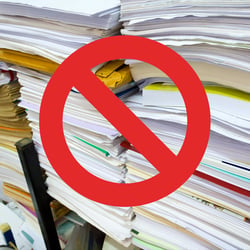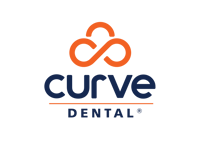Digital patient forms are becoming increasingly popular in dentistry as they offer a convenient way for patients to complete important paperwork for oral healthcare procedures and streamline the insurance reimbursement process. Adopting digital forms for dentistry patients can be a great way to make their experience easier, more comfortable, and more efficient. Digital forms provide quick benefits to both the practice and its patients.
These forms are becoming increasingly popular in the dentistry industry. It provides an efficient way for dentists to collect patient information, such as medical history, insurance information, and contact details before they even come in for an appointment. Patients love to fill out their information from the comfort of their own home, and for your staff’s sake they submit it directly to the office.
Eliminate Unnecessary Paperwork and Streamline Processes for Patients, Dentists, and Dental Staff Alike
 For patients, digital forms reduce paperwork and make it easier to fill out forms at their own convenience. This can be especially beneficial if patients perfer an appointment online or if they are unable to physically be at the practice. Digital forms also reduce administrative burden, saving the staff and patients time by eliminating the hassle of printing and filling out the forms by hand.
For patients, digital forms reduce paperwork and make it easier to fill out forms at their own convenience. This can be especially beneficial if patients perfer an appointment online or if they are unable to physically be at the practice. Digital forms also reduce administrative burden, saving the staff and patients time by eliminating the hassle of printing and filling out the forms by hand.
For the practice, digital forms can provide enhanced data accuracy and help improve the overall efficiency of the practice, as well as improve communication between the practice and its patients. With digital forms, information is collected accurately and securely, helping reduce errors and streamline the process. Additionally, digital forms can help managers track patient history and generate custom reports or data to help the practice make better decisions.
As a sidenote, any dental management software that includes 3D digital images of a patient's mouth along with the digital forms can be used to design prostheses such as crowns, veneers, onlays, inlays, bridges, implant-supported restorations, or dentures are increasingly making its way into dentistry. Just more evidence of superior dental platforms.
The use of digitalization in dentistry is also making it easier for health insurance companies and dental practices to cooperate. Digitization can help with the billing process with patient data that can be used in an easy (for everyone, patients and staff) form.
Digital Dentistry Forms: Just Do It!
 All in all, digital forms offer improvement of convenience, accuracy, and efficiency for dentistry patients. They reduce paperwork and administrative tasks. If you’re not already on board, we suggest you check out Curve Dental’s Smart Forms.
All in all, digital forms offer improvement of convenience, accuracy, and efficiency for dentistry patients. They reduce paperwork and administrative tasks. If you’re not already on board, we suggest you check out Curve Dental’s Smart Forms.



